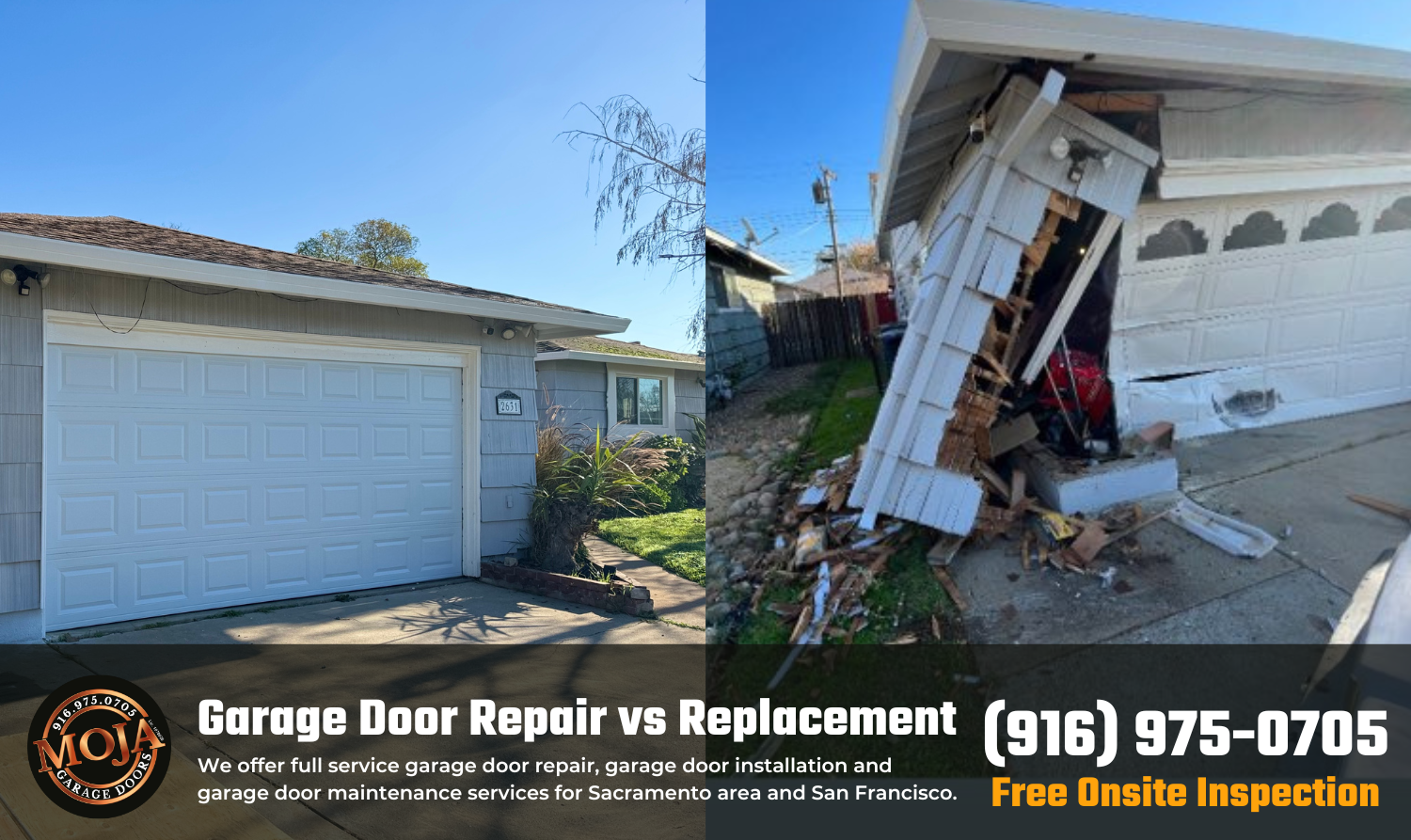When it comes to maintaining your home, the garage door is often an essential yet overlooked component. Over time, it may show signs of wear and tear, leading to a crucial decision: should you repair or replace it? This article will guide you through the factors to consider, providing a comprehensive analysis to help you make an informed decision.
Understanding the Signs of Damage
Before diving into the decision-making process, it’s essential to understand the common signs indicating that your garage door needs attention:
- Noise Issues: Squeaking or grinding noises during operation.
- Operational Failures: Difficulty in opening or closing the door.
- Visible Damage: Dents, cracks, or warping in the door panels.
- Slow Response: Delays in the door’s response to commands.
- Higher Energy Bills: Poor insulation leading to increased energy consumption.
When to Repair Your Garage Door
1. Minor Cosmetic Damage: Small dents or scratches can often be repaired without replacing the entire door. These issues typically do not affect the door’s functionality but can be unsightly.
Example: A minor dent caused by a basketball hitting the door can be fixed by a professional without needing a full replacement.
2. Functional Components: If the problem lies with individual components like springs, cables, or openers, repair is often the best option. These parts are replaceable and can restore the door’s functionality at a fraction of the cost of a new door.
Example: Replacing a broken torsion spring can resolve operational issues without requiring a new door.
3. Cost-Effective Solutions: Repairs are usually more affordable than replacements. If the damage is not extensive, repairing can save significant money while extending the door’s life.
Example: Fixing a malfunctioning garage door opener is less expensive than installing a new system.
4. Regular Maintenance: Regular maintenance, such as lubricating moving parts and tightening hardware, can address minor issues before they become major problems. This can prolong the life of your garage door and delay the need for replacement.
Example: A routine tune-up can prevent problems like misalignment and excessive noise.
When to Replace Your Garage Door
1. Extensive Damage: When the door suffers significant structural damage, such as large cracks, warping, or severe dents, replacement might be the only viable option to ensure safety and functionality.
Example: A garage door hit by a car may have irreparable damage, necessitating a replacement.
2. Energy Efficiency: Older garage doors may lack proper insulation, leading to higher energy costs. Replacing an old door with a modern, insulated one can improve energy efficiency and reduce utility bills.
Example: Upgrading to an insulated garage door can help maintain temperature control, reducing heating and cooling costs.
3. Enhanced Security: Newer garage doors come with advanced security features that older models lack. If security is a concern, replacing your old door with a more secure model can provide peace of mind.
Example: Installing a new garage door with rolling code technology can enhance home security.
4. Aesthetic Improvement: A new garage door can significantly boost your home’s curb appeal. If your existing door looks outdated or doesn’t match your home’s style, replacing it can enhance the overall appearance and even increase property value.
Example: A sleek, modern garage door can transform the look of your home, making it more attractive to potential buyers.
5. Frequent Breakdowns: If your garage door requires frequent repairs, it may be more cost-effective to replace it. Constant breakdowns can be a sign that the door is nearing the end of its lifespan.
Example: If you find yourself calling for repairs every few months, a new door might be a better investment.
6. Modern Features: New garage doors come with advanced features such as smart technology, improved insulation, and better safety mechanisms. Upgrading to a new door can offer these benefits, making your life easier and your home more secure.
Example: A garage door that integrates with smart home systems can provide convenience and added security.
Making the Decision: Repair or Replace?
To make the best decision, consider the following:
- Extent of Damage: Assess whether the damage is cosmetic or structural.
- Cost: Compare the cost of repairs with the price of a new door.
- Age of the Door: Older doors may not be worth the investment in repairs.
- Energy Efficiency and Security Needs: Evaluate if a new door could provide long-term savings and enhanced security.
- Aesthetic Preferences: Consider if a new door would enhance your home’s curb appeal.
Deciding between repairing and replacing your garage door depends on various factors, including the extent of damage, cost, and the door’s age. While repairs can be a cost-effective solution for minor issues, replacement may be the best option for extensive damage, improved energy efficiency, and enhanced security. By carefully evaluating these factors, you can make an informed decision that ensures the safety, functionality, and aesthetic appeal of your garage door.


